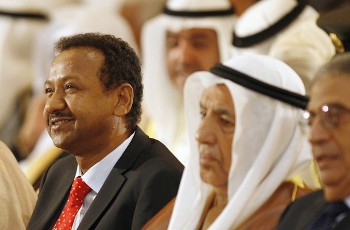Sudanese official slams controversy over Kuwaiti loan
July 8, 2013, (KHARTOUM) – The executive director of the East Reconstruction and Development Fund (ERDF), Abu Obieda Mohamed Duj, has criticized lawmakers who objected to the Kuwaiti loan which will be uses to fund the electricity project in eastern Sudan.

52 MP’s voted in favor of the loan with 46 against and 9 abstentions.
Earlier this year, Kuwait and Sudan signed the $85 million loan agreement that aims at expanding electricity in East Sudan and make it available to 660,000 people.
The loan was offered at a 2% annual interest rate in addition to 0.5% for administrative fees and a repayment period of 21 years including a 4 year grace period.
Duj said in press statements at the national assembly yesterday, that Kuwait has reduced the interest rate on the loan from 7% to 2%, pointing that the Kuwaiti government declined to turn the 2% into administrative fees in order for the loan to be interest-free.
He drew scathing criticism at MP’s who voted against the loan, saying that the parliament had passed similar loans in the past.
The Sudanese official further said that the loan should be allowed on the basis of necessity and pointed that the pro-government Islamic Fiqh Council has issued a Fatwa (religious decree) permitting the loan.
He stressed that the ERDF seeks balanced development for all areas of eastern Sudan, saying that ERDF projects have been fully implemented.
But earlier this year some members from the Eastern Front (EF), a former rebel group who are part of the ERDF unleashed a barrage of criticism at Khartoum, claiming that the latter has breached obligations contained in the 2006 peace treaty signed in Eritrea.
The disgruntled group accused Duj of carrying out the functions bestowed upon the board of directors and working exclusively with the federal finance minister in approving projects.
They also alleged that funds were misappropriated and vacancies were created outside the approved organizational structures and that the people of the East were excluded from the top posts or were given positions without a mandate.
Moreover an economic, social, administrative and technical assessment of the projects undertaken in the last five years as required by the peace agreement was not performed.
The group said that a presidential decree outlining the functions and powers of ERDF allowed the governor, ministries and other agencies to interfere in its work.
They noted that previous complaints to the president and other officials were ignored.
Eastern Sudan has the country’s highest poverty rate, the highest level of child deaths under five years old, and the most children between the ages of six and 13 out of school, says the United Nations Development Program (UNDP).
(ST)
